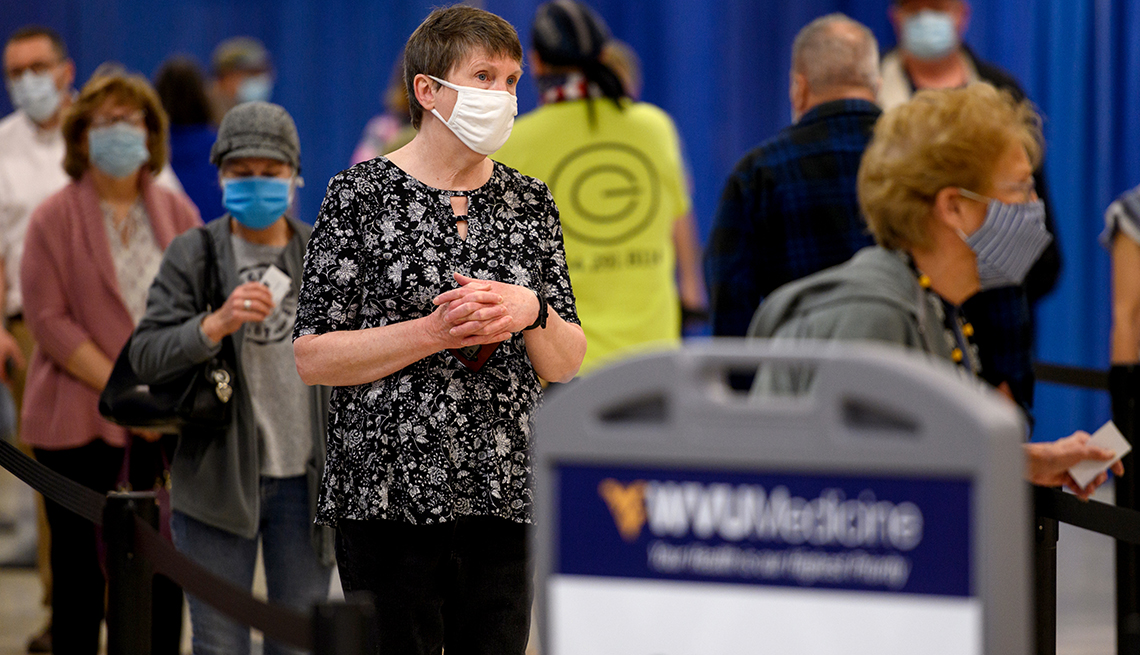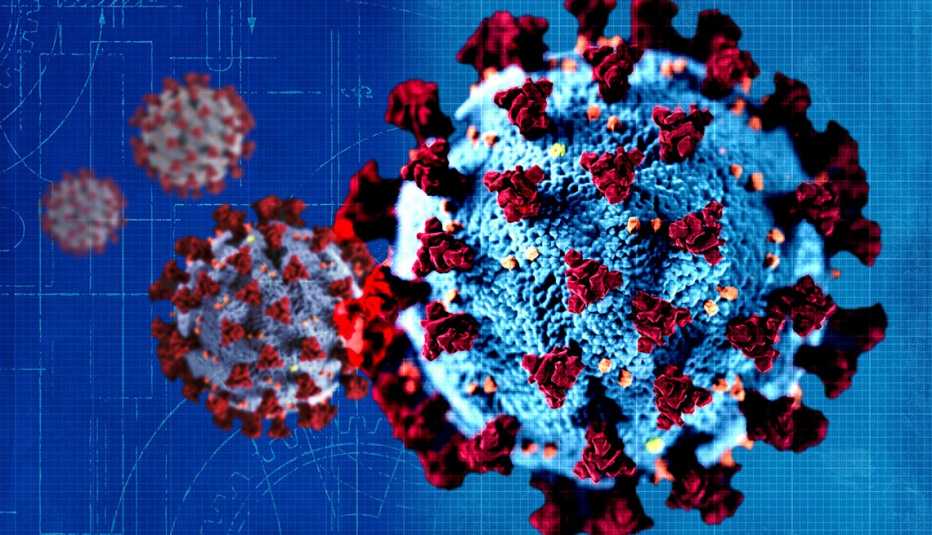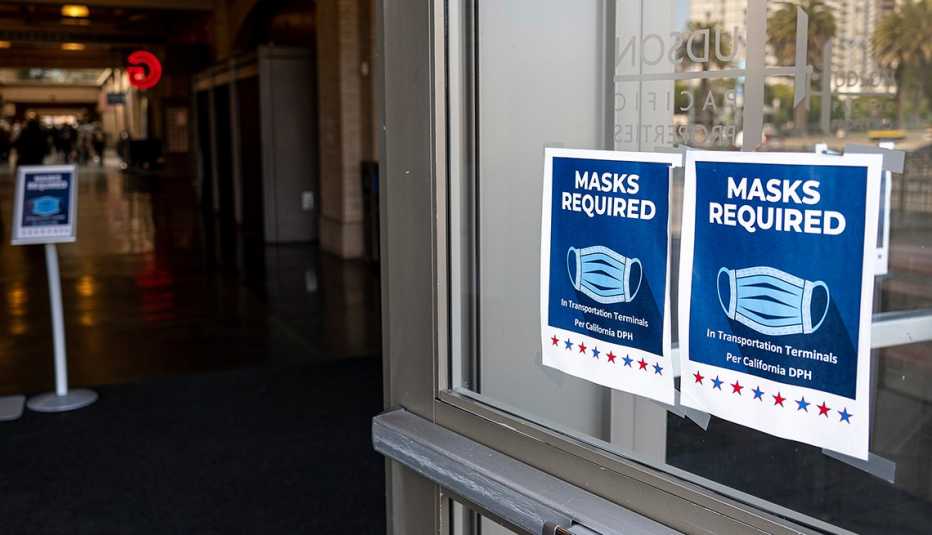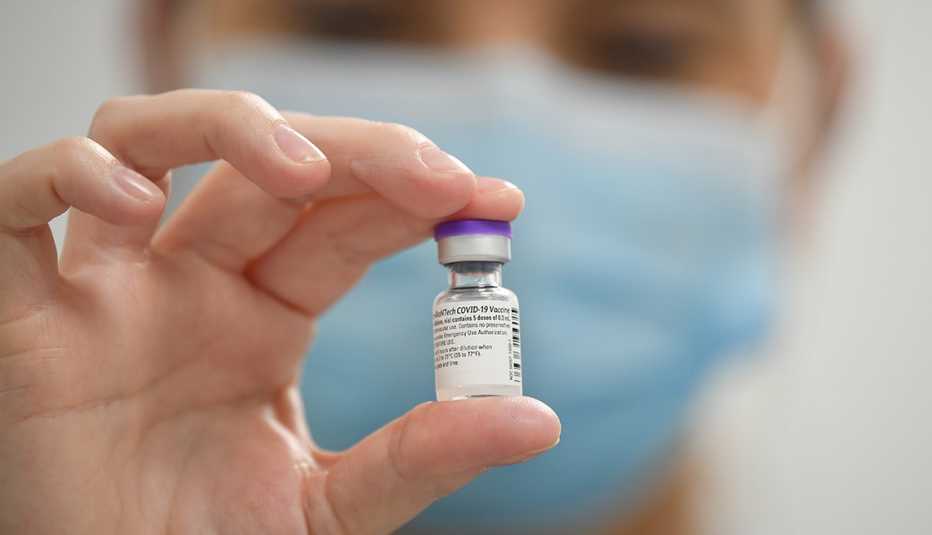Staying Fit
The Biden administration's key health and medical experts are recommending that Americans get a third COVID-19 vaccine “booster” shot beginning as early as Sept. 20 in the face of data that shows the effectiveness of the two-dose vaccines decreases over time.
Under the administration's plan, people would be advised to get a booster shot eight months from the date they received the second dose of either the Pfizer-BioNTech or Moderna vaccine. The first COVID vaccinations outside of clinical trials began to be administered in the U.S. in December, with second doses coming three to four weeks later, making the earliest vaccine recipients eligible for the boosters starting in September.


AARP Membership— $12 for your first year when you sign up for Automatic Renewal
Get instant access to members-only products and hundreds of discounts, a free second membership, and a subscription to AARP the Magazine.
Officials said that they expect those Americans who received the one-dose Johnson & Johnson vaccine will also need boosters, but the data on the extended effectiveness of that vaccine is not yet available. People did not begin to receive J&J vaccine doses until March.
The administration's plan needs sign-off from the U.S. Food and Drug Administration (FDA), which would have to expand the emergency use authorization (EUA) that authorizes Americans to get the vaccines. In addition, the Centers for Disease Control and Prevention (CDC) would have to concur with the FDA's action and recommend how these third shots should be administered and to whom.
Last week, these two agencies recommended third shots for people with compromised immune systems. Meanwhile, the administration continues to encourage unvaccinated people to get their first doses.
Because health care workers, residents of nursing homes and other long-term care facilities and older Americans were among the first to receive COVID-19 vaccinations, they will likely be the first to qualify for the booster shots.
AARP has urged throughout the pandemic that these groups, which are most vulnerable for infection, illness and death, get priority in being vaccinated. In an Aug. 18 letter to Health and Human Services Secretary Xavier Becerra, AARP calls on the federal government to make sure that older Americans get priority and that access to third shots be simple and clear.
"It is absolutely critical that older Americans know where and how they can get a booster shot,” Nancy LeaMond, AARP executive vice president and chief advocacy and engagement officer, says in the letter. “During the initial rollout of the vaccines, there was significant confusion and anxiety among older Americans as they struggled to make appointments.”
LeaMond also urged the secretary “to develop a centralized, user-friendly website to help people find out when they are eligible for a booster shot, where booster shots are available in their communities, and how to book their appointments.” And she called on federal officials to give priority to people who are homebound or who live in nursing homes and other congregate settings.
Jeff Zients, the White House coronavirus coordinator, said at an Aug. 18 briefing that the administration will make sure it will be “easy for all Americans to get their free vaccine, their booster shot in their arm around their eighth-month mark." He also said there will be enough supply for everyone who seeks a booster to get one.
The next step in the booster process is for the two vaccine manufacturers to ask the FDA to expand their respective EUAs to allow booster shots for all, and then for the CDC's advisory panel to recommend how and to whom a booster should be administered. The extra shots would begin soon after the FDA and CDC give their approval.
Why are boosters needed?
Even while explaining the plan to get a third shot in many Americans’ arms, the White House COVID-19 response team stressed that those who are fully vaccinated continue to be largely protected from severe illness, hospitalization and death. And officials urged people not to immediately go out and try and obtain another shot — with the exception of people with compromised immune systems for whom the CDC has already recommended a third dose.
CDC Director Rochelle Walensky and President Biden's chief medical adviser, Anthony Fauci, pointed to a number of studies that show both the effectiveness of the vaccine and the fact that production of antibodies begins to wane at about the six-month mark. Some scientific findings:
- One Mayo Clinic study from five states through July found that the Pfizer-BioNTech vaccine's effectiveness against the delta variant dropped from 76 percent to 42 percent, while the Moderna vaccine's effectiveness went from 86 percent to 76 percent.
- Another CDC analysis of both vaccines found that among nursing home residents, the effectiveness against infection dropped from about 75 percent to 53 percent between March 1 and Aug. 1.
- Other research looked at patients at 21 hospitals in 18 states and found the ability of the two vaccines to protect against hospitalization remained steady at 86 percent.
Fauci said the science also shows that the level of antibodies — which the body uses to fight off an infection like the coronavirus — declined over time. A third dose, he said, would increase the production of antibodies by about 10 percent.
"This is a plan for the future,” U.S. Surgeon General Vivek Murthy said at the White House briefing. Murthy said if the current trajectory continues there will likely be an increase in breakthrough hospitalizations and deaths.
Medical experts say that ever since the news broke that the administration was going to recommend booster shots, there have been questions about the timing of a third dose and whether such an announcement is premature.
"I must admit before hearing this today I was more of a booster skeptic than I am now,” said William Moss, executive director of the International Vaccine Access Center at the Johns Hopkins Bloomberg School of Public Health. “But I think they presented a fairly convincing argument for booster doses at this time."
Moss said that though there is no way to be certain that getting a booster at the eight-month mark is crucial, “the truth is we are seeing a surge in cases and I'm sure that's the urgency they are feeling.” According to CDC data, the seven-day daily average of cases had dropped to nearly 12,000 by June 18, but as of Aug. 17 the seven-day average had swelled to nearly 140,000.
Dena Bunis covers Medicare, health care, health policy and Congress. She also writes the “Medicare Made Easy” column for the AARP Bulletin. An award-winning journalist, Bunis spent decades working for metropolitan daily newspapers, including as Washington bureau chief for the Orange County Register and as a health policy and workplace writer for Newsday.



































































